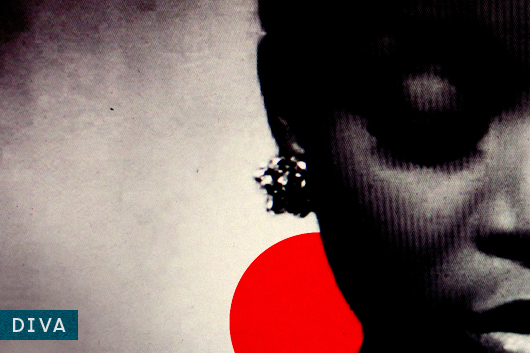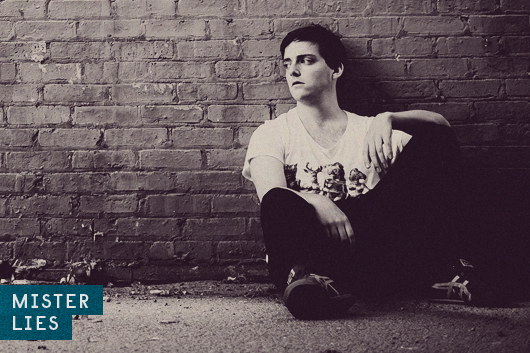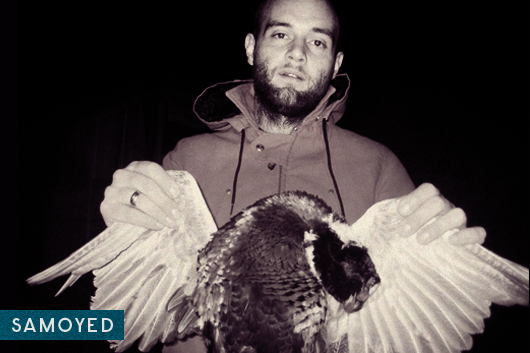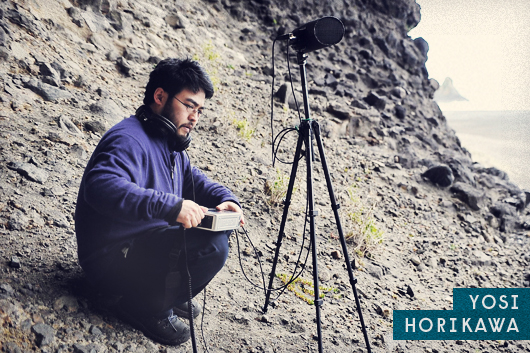Bubblin’ Up Week 2013: 10 More Artists to Watch
All week long, XLR8R has been focusing its attentions on a fresh crop of artists […]

Bubblin’ Up Week 2013: 10 More Artists to Watch
All week long, XLR8R has been focusing its attentions on a fresh crop of artists […]

All week long, XLR8R has been focusing its attentions on a fresh crop of artists who we expect will be doing big things in 2013. (For those that haven’t been paying attention, click here to look over the entire series of Bubblin’ Up Week 2013 content.) Yet even after several days of profiling up-and-coming acts that we’re excited about, we realized that there were still plenty of other noteworthy producers we hadn’t yet mentioned. As such, we’ve elected to wrap up the week with a list of 10 promising artists who appear primed to make some waves in the months ahead.

In 2008, the Netherlands awarded then-21-year-old Pascal Terstappen the country’s Grote Prijs (“Grand Prize,” an annual recognition of new musical talent) for his work as Applescal. Since then, he’s released two full-length albums and prepped a third, all the while honing his skill for flavoring burning techno with a tinge of bleary-eyed wooziness. The new LP is called Dreaming in Key; it’s scheduled to drop in February, and finds Applescal exploring the energy between the grinding momentum of big-room dancefloor beats and the grogginess of soft, fuzzy keys and delicately textured synths. His punch-drunk take on smoldering techno will arrive via his own Atomnation label, which has also sponsored releases by other colorfully emotive beatmakers like Utrecht’s David Douglas and Germany’s AnimalZOO. Elissa Stolman

Seeing as how DIVA is an anonymous artist without so much as a website or physical location to reference, interest in the producer boils down to the music put forth on his/her/its Paris Stabbing EP for the understatedly on-point New Kanada label. The cyclical synth patterns, bare-bones drum loops, and disembodied vocal fragments that drive songs like the claustrophobic, slow-thumping “But I’ve Never” and polyrhythmic workout “Paris Stabbing (Beats)” make DIVA’s rigid brand of hardware techno feel coldly distant in the most intriguing of ways. And it’s that kind of mechanical detachment—when paired with an apparent knack for disconcerting sound effects and minimalist arrangements—that exudes a preternaturally classic vibe that’s all too rare among new artists. So while we’re currently content with the three tunes that Paris Stabbing offers, we also can’t wait to hear what DIVA will deliver to us next. Patric Fallon

For some time now, a new house sound has been emerging from the city of Belfast in Northern Ireland. Melodic but also rugged, it’s music seemingly tailor made for the aerobic dancing that used to define New York’s legendary ’90s underground club culture. At the center of this movement is blog/production outfit Bicep (a duo which is now based in London), but quickly rising on the periphery is frequent collaborator Ejeca (a.k.a. Gary McCartney). Though he’s only released four EPs so far, McCartney’s established a cohesive identity for himself that samples the classic gear of the past with song structures more suited for the demands of the present. His most celebrated release has been Horizon, a three-song EP on London’s Aus imprint that delved into the guts of US garage, only to emerge with something retooled and glossy—it was classic New York from the vantage point of modern UK bass. Yet Ejeca’s best stuff flew mostly under the radar; his vinyl-only EPs on Tusk Wax and W&O Street Tracks pointed in the direction of an almost period-perfect, tracky rawness. 2012 was a strong introduction, but it doesn’t seem as though Ejeca will be slowing down anytime soon—he’s already announced an impending 12″ collaboration with like-minded producer Rhythm Operator for early 2013. Derek Opperman
Photo by John Taylor

Warped vocals, syncopated beats, and cassette crackle may be the norm in much of today’s alterna-pop landscape, but Chicago-based producer Mister Lies (a.k.a. Nick Zanca) offers a quietly beautiful take on well-tread touchstones that still manages to sound novel. Born in ’92, and originally hailing from Connecticut, Mister Lies moved to Chicago for school, where he started making beats in his dorm room. While traces of Burial and ’90s trip-hop prominently show up in his work, Mister Lies also has a penchant for soft-rock guitar loops and piano lines, lending his music an air of cloistered nostalgia. (His official bio claims that he was “raised by wolves in the suburban jungles of Connecticut,” and that he makes music in a Vermont cabin on a lake, but we’ll take that with a grain of salt.) Last year’s excellent Hidden Neighbors EP offered a range of sounds, from ambient opener “Hidden Neighbors (For Beverly)” to the 2-step-leaning “Morgan” and the soft pop of “False Astronomy,” which surprisingly contained a pitched-up sample of Joni Mitchell. His most recent release, the “Dionysian” b/w “Waveny” 7″ on Lefse, explored similarly downtempo territory. Few artists can manage a breadth of sound without coming off as disjointed, but Mister Lies’ work remains cohesive, despite its varied influences. A full-length is planned for February, also via Lefse, which will likely continue his exploration of wintry soundscapes and leftfield samples. Nathan Reese

Juicy chords, gliding basslines, and garage-indebted shuffles are certainly nothing new to dancefloors, but in the hands of Cardiff resident Cayne Ramos (a.k.a. The Organ Grinder), these house-music staples still sound fresh. Having previously contributed his skills as one half of the short-lived Didz and Chico duo, Ramos first appeared under his solo handle late in 2011 with the “New Age People” b/w “Obsession” 12″ for Catapult, a record whose sumptuous b-side ignited a good deal of online fervor after standing out during a Move D Boiler Room set a few months after its release. In the time since, The Organ Grinder has proven adept at crafting luscious, full-bodied house tunes on two subsequent vinyl-only efforts for Catapult and the four-track Enoonami EP for Gerd’s 4lux imprint. With a penchant for solid low end, jazzy chord progressions, and just the right touch of chopped vocals (or sometimes actual vocal collaborators), The Organ Grinder has began to take shape as a name consistently attached to the sensuous and soulful side of peak-time house rollers—appropriately enough, with at least one classic organ patch making an appearance on all his releases. Glenn Jackson

These days, the UK has no short supply of ambitious teenage producers who are gleefully exploring the limits of low-end-heavy sounds. 18-year-old Leo Marcus (a.k.a. Pále) is no exception, only instead of experimenting with playfully pitched vocal hooks and rushes of bass like many of his contemporaries, the Manchester native approaches low frequencies from a decidedly moodier angle. He’s now a resident of London, and though his creative attentions are partially focused on his work as a freelance musician for various companies and independent films, Marcus continues to craft his own compelling output. His most recent offering, the Catacombs EP, deals in wispy, faraway vocals and ghastly sonic effects that lend his sticky beats a haunting life. However, his productions don’t just stir morose vibes, as he seems more interested in creating an abstract sense of beauty, his synths and vocal bits clinging like fog to his crisp percussion. Elissa Stolman

Samoyed‘s vision of ambience is a chilly one. Rather than dozing off to hearth fires, the textures on Andrew Cook’s downcast first album, 2011’s Always from This Point, conjure late-night wanderings, and can cut like wind on exposed wrists. It’s an uncommon and emotionally suggestive path, and subsequent releases have seen the Scottish producer setting jacking rhythms, basslines, and melodies into this crusty ambience to uncategorizable effect. Dispositionally, Samoyed bears some resemblance to Lukid—both have a preternaturally well-tuned sense of self-deprecation and shy away from pristine, digital sounds—whose cheekily monikered Glum imprint issued the Honey Dripping Behind EP last year. Displaying a latent talent for crisp house arrangements, the EP’s four tracks cover as many floor-friendly styles, from the Mr. Fingers-esque deep house of “Cherry Ripe” to the cassette-fi rave of “Klondike Rush.” Throughout these exercises in style, Samoyed still makes room for the lopsided loops and decelerating breakdowns that tie the release to his earlier ambient work while venturing into head-bobbing territory that seems to come as much from UK bass’ new emphasis on house and techno as it does from hip-hop. What makes Samoyed a particularly interesting prospect in 2013, though, has everything to do with him growing more confident while putting his intriguing stamp on whatever sounds strike his fancy. Brandon Bussolini

Having cut his teeth in the crucible of the dubstep/bass music scene of the last few years, Manchester’s Synkro has avoided being lost in the clamor by showing a soft underbelly—the man conistently turns out subtle, delicate, and melodic work that defies expectation. Where darkness and decay often mark the introspective sounds of his contemporaries, Synkro injects warmth by using careful texture and uplifting chord structure. Any post-rave desolation is mostly present in his carefully chopped and syncopated rhythms, structures that owe much to the tonally gamut-running percussives of Instra:mental. Operating as one half of Kiyoko, 2012’s Sea of Trees EP prompted Synkro to embrace this more ambient-inclined side of himself, ultimately feeding into his solo work, in particular the forthcoming Acceptance EP. Slated for release in the first weeks of 2013, Acceptance is a fully actualized step toward an emotive and soulful output. With hints of mournfulness at the edges, Synkro’s effort is directed at beautifying it; there’s an underlying hopefulness that may be his strongest artistic tool. Almost self-referentially, the title track is cadenced with a vocal sample, “I just wish people could accept each other for what they are on the inside.”—it’s an unguarded presentation that hints at poignant future output from an artist coming into his own. Zach Gunsel

Earlier this year, Los Angeles-based Urulu released Sincerely 91, an EP that managed to quickly summarize his sound so far. Otherwise known as Taylor Freels, the fresh-faced producer creates dance music that provides a contemporary interpretation of the house sound of the early ’90s—with a particular indebtedness to the swung rhythms and driving feel of Kerri Chandler. Though he first appeared in 2011 with an EP on Lazaro Casanova’s Petfood imprint, it was really in 2012, when he was picked up by Berlin’s Exploited imprint, that he truly began to blossom. First came Across the Sky, with its eponymous a-side that combined old-school atmospherics with an updated tonal palette rooted in the digital present. His biggest track to date has been “1991,” a cut off Sincerely 91 which had all the hallmarks of an old-school, peak-time anthem: a Nightcrawlers-style M1 organ riff, lushly arranged ambient pads, and even a wailing diva. Yet though his work has mostly been tied to the past, the way forward seems less so. His recent In My Life EP—an effort for the Amadeus imprint, which Freels has a hand in running—sharpens his sound by stripping back some of the references to get at something more subtle. With only four official releases, it’s still very early in Urulu’s career, but we’re certainly excited to see where he goes next. Derek Opperman

The use of found sounds isn’t necessarily a new thing in electronic music—artists like Matmos, Aphex Twin, and The Books have all incorporated everyday samples and field recordings into their productions, and, in some cases, they’ve even managed to create entire albums based around the use of seemingly mundane bits of audio. Yosi Horikawa operates in a similar fashion, but it wouldn’t be fair to write him off as just another face in the crowd. In 2011, the Japanese beatmaker and formally trained sound designer garnered recognition during his stint at the Red Bull Music Academy in Madrid, and built upon that momentum with the release of last year’s Wandering EP. Horikawa’s take on found sound is simultaneously enticing and refreshing, as his music combines influences from the beat scene, hip-hop, and musique concrete. His samples (which include bird calls, footsteps, forest sounds, ping-pong balls, the turning of pages, and a litany of other sounds) are certainly inventive, but most importantly, they’re accessible, which is why we so look forward to hearing more of his work in the future. Christian Santana

